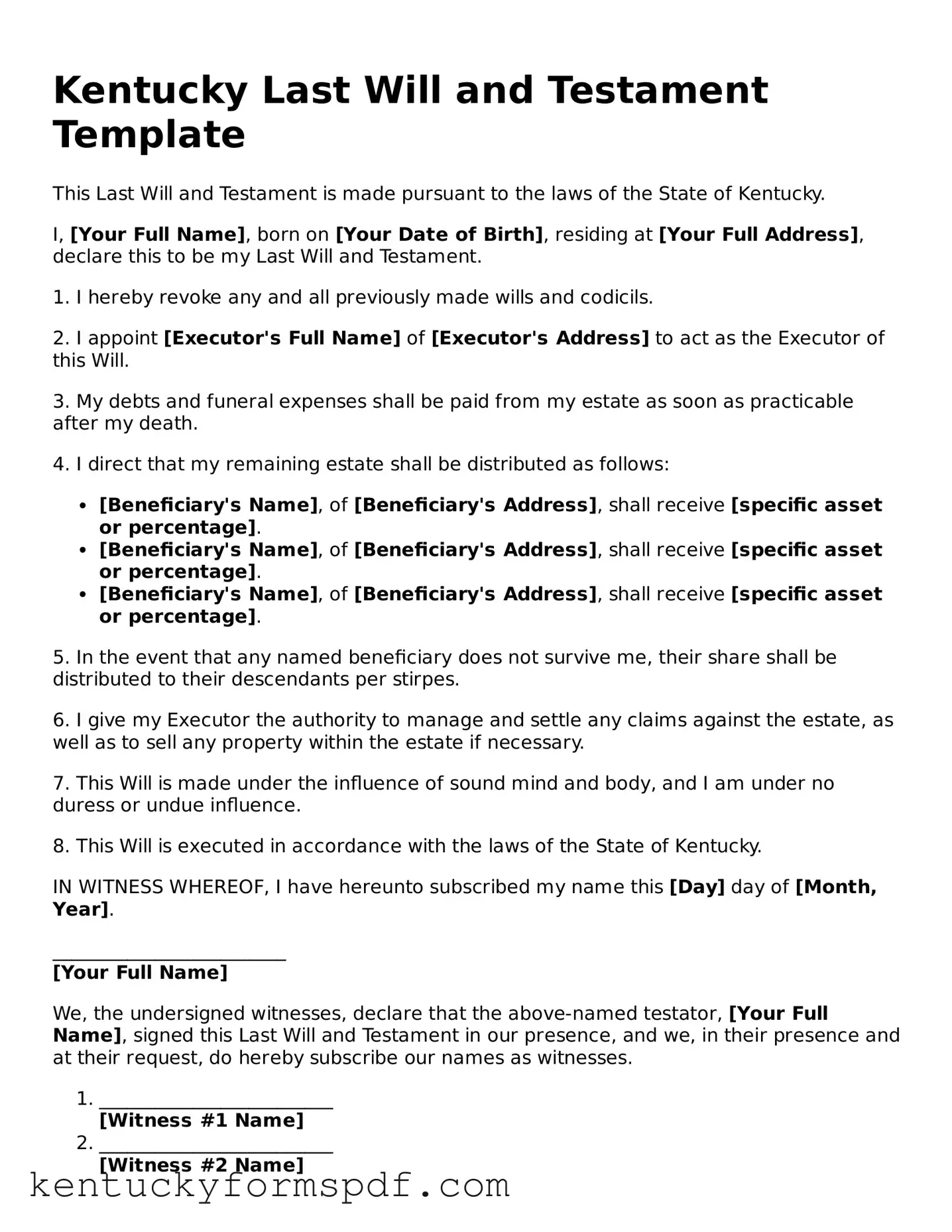What is a Last Will and Testament in Kentucky?
A Last Will and Testament is a legal document that outlines how a person's assets and property will be distributed after their death. In Kentucky, this document also allows individuals to name guardians for minor children and specify funeral arrangements. It is an important tool for ensuring that your wishes are followed and can help avoid disputes among family members.
Who can create a Last Will and Testament in Kentucky?
In Kentucky, any person who is at least 18 years old and of sound mind can create a Last Will and Testament. Sound mind means that the individual understands the nature of making a will, the extent of their property, and the people who may inherit their assets. If you meet these criteria, you can draft a will to express your wishes.
What are the requirements for a valid will in Kentucky?
To be valid in Kentucky, a will must be in writing and signed by the person making the will, known as the testator. Additionally, it must be witnessed by at least two individuals who are present at the same time. These witnesses should not be beneficiaries of the will to avoid any potential conflicts of interest. It's important to follow these guidelines to ensure the will is legally enforceable.
Can I change or revoke my will in Kentucky?
Yes, you can change or revoke your will at any time while you are alive and of sound mind. In Kentucky, this can be done by creating a new will that explicitly states that it revokes any previous wills. Alternatively, you can make changes to your existing will through a codicil, which is a legal amendment. Just remember that any changes must also meet the same requirements for validity.
What happens if I die without a will in Kentucky?
If you pass away without a will, you are considered to have died "intestate." In this case, Kentucky law determines how your assets will be distributed. Generally, your property will go to your closest relatives, such as your spouse, children, or parents. This distribution may not align with your wishes, making it important to have a will in place.
How can I ensure my will is properly executed?
To ensure your will is properly executed, consider consulting with an attorney who specializes in estate planning. They can guide you through the process and help you meet all legal requirements. Additionally, store your will in a safe place and inform your loved ones about its location. Regularly review and update your will as your circumstances change to ensure it reflects your current wishes.

